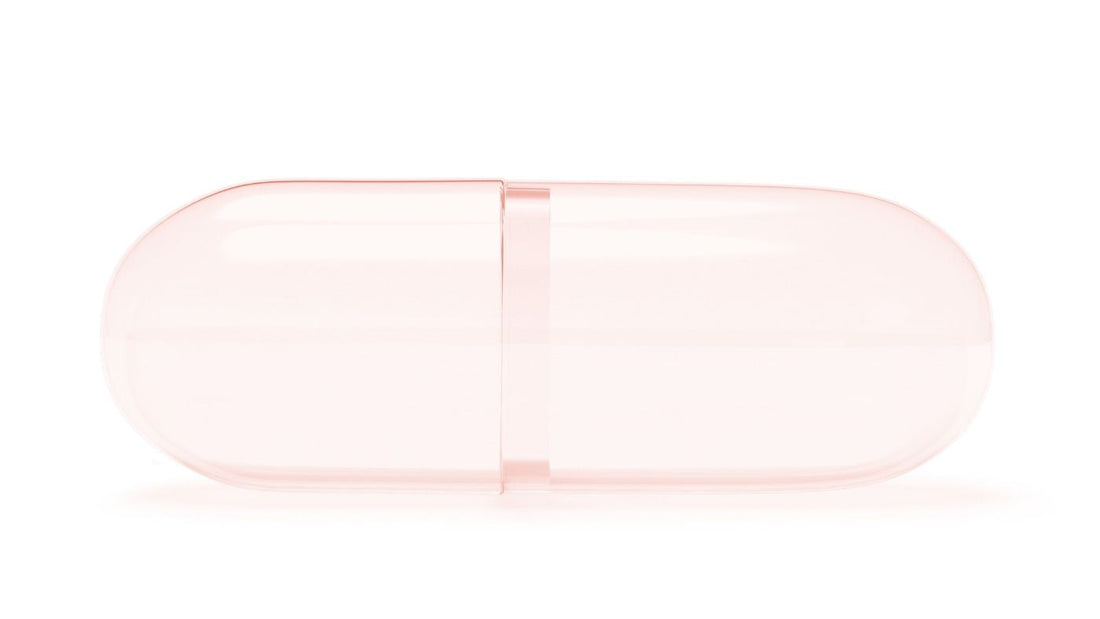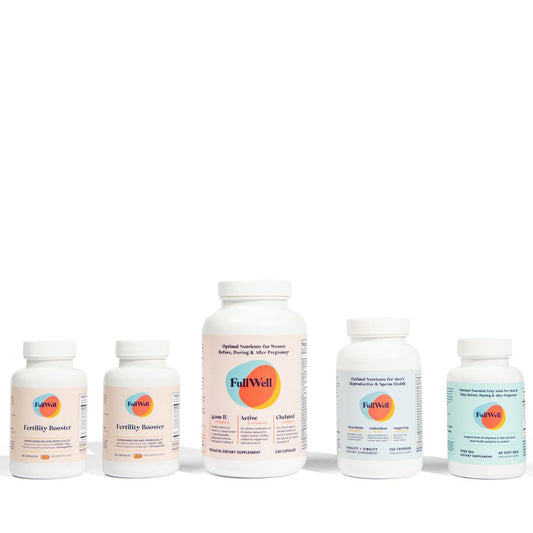4 Factors for Supplement Safety: Inside FullWell's Sky-High Standards
Read more

I’ve said it before, and I’ll say it again: One of my favorite things about our amazing FullWell customers is how curious you all are about very high level topics. The number of pointed, educated questions we get is extremely impressive for me as a practitioner, and I will never take for granted how exciting it is to be implored to dive into advanced topics. So thank you for nurturing my need to nerd out! Now, let’s get to today’s topic.
But I know you’re not satisfied with the short answer, so let’s take a closer look. This question comes up sometimes when customers catch a glance at our small list of “other ingredients.”
Magnesium stearate is a simple salt that combines the mineral magnesium with stearic acid, a common saturated fat found widely in foods.
To break it down further, let’s first separate it out. Magnesium (often referred to as “nature’s muscle relaxer”) is an essential mineral required for the regulation of body temperature, nucleic acid and protein synthesis, and in maintaining nerve and muscle cell electrical potentials (1). During pregnancy, magnesium supplementation may support normal fetal growth and healthy blood pressure during pregnancy (1).
(To be clear, FullWell Prenatal contains 300 mg of Magnesium Glycinate as the active form of magnesium, and Vitality and Virility fertility support formula contains 100mg. That nutrient in that particular form is not what this post is discussing. I know, it can be confusing!)
A stearate, on the other hand, or stearic acid (also called Octadecanoic Acid), is one of the most common long-chain fatty acids, found in both natural animal and vegetable fats for example, coconut oil is high in stearate. When combined with magnesium, the compound serves not as part of the supplement itself, but as a vehicle for the nutrients in our capsules that also helps ensure consistency in dosage across the board.
As it pertains to supplements, magnesium stearate is included in many products as an excipient, or an inactive substance that serves as the vehicle for the supplements’ nutrient contents (1). During the mixing of individual ingredients, it helps ensure that the equipment runs smoothly and that each individual ingredient blends together in correct proportions. That said, magnesium stearate is an important component of improving the consistency and quality control of any capsule (2). Essentially, it ensures that each pill contains consistent amounts of each ingredient that is mixed during production. Supplements that do not use it often see shocking margins of error and are unable to guarantee their consistency and quality in any meaningful way as the alternatives to magnesium stearate, such as l-leucine, are far less effective. Magnesium stearate also doubles as a timing specialist, delaying the breakdown and absorption of capsules until they have landed in the correct area of the bowel and can be optimally absorbed.
Unfounded allegations of magnesium stearate’s toxicity (that were largely based on unproven, circumstantial studies) have been going around as long as I have been a practicing Registered Dietitian. I have spent much of my career researching and confirming the safety of magnesium stearate, and my findings have been upheld by both the Food and Drug Administration (FDA) and the World Health Organization (WHO). The FDA regards stearic acid as GRAS (Generally Regarded As Safe) and approves of it being added to supplements in accordance with Good Manufacturing Practices (GMP) (3).
*FullWell works exclusively with GMP-certified manufacturing facilities.
Similarly, WHO also confirmed its support of the use of magnesium stearate, stating that there are no differences in its toxicity compared with other magnesium salts (5). It’s a good time to reiterate again that both magnesium and stearic acid are both naturally occurring in many whole foods. Not only does the evidence not show any harm, we wouldn’t expect there to be. Science has reassured me time and time again that stearic acid is a safe fatty acid found in healthy foods, and that magnesium stearate is subsequently completely safe. If you recall, I have incredibly high standards about what makes it into my formulas for FullWell supplements, and I would not include magnesium stearate if it didn’t check all of my boxes:
Through our testing and consulting with experts in supplement manufacturing, we are confident that there is no way to ensure consistent amounts of nutrients in each serving using l-leucine or other excipients. This is important because you need to know you are getting the nutrients listed on the label in each dose. For this reason, FullWell utilizes magnesium stearate in small amounts as necessary for the functionality of our supplements once ingested. Plus, the amount you take in through FullWell is far, far outweighed by the amount of stearates found in common foods that you eat every day!We’ve reached the final proof: stearates are already something you consume in much larger quantities on your own, regardless of supplements. As a food-first dietitian, I wholeheartedly support the inclination to first get your nutrients from whole food. That said, stearic acid (or stearate) is a predominant saturated fat in the typical diet. They can come from both animal and plant sources, and are usually consumed in amounts of several thousand milligrams per day by the average person. Almost all fats and oils naturally contain far more stearates than any dietary supplements.
Absolutely. The words “saturated fat” sometimes carries a bit of a stigma, but stearates don’t typically present some of the cardiovascular risks that other forms of saturated fat do, so the nutrient power of those foods packs a pretty big punch (7).
- The National Center for Biotechnology Information
